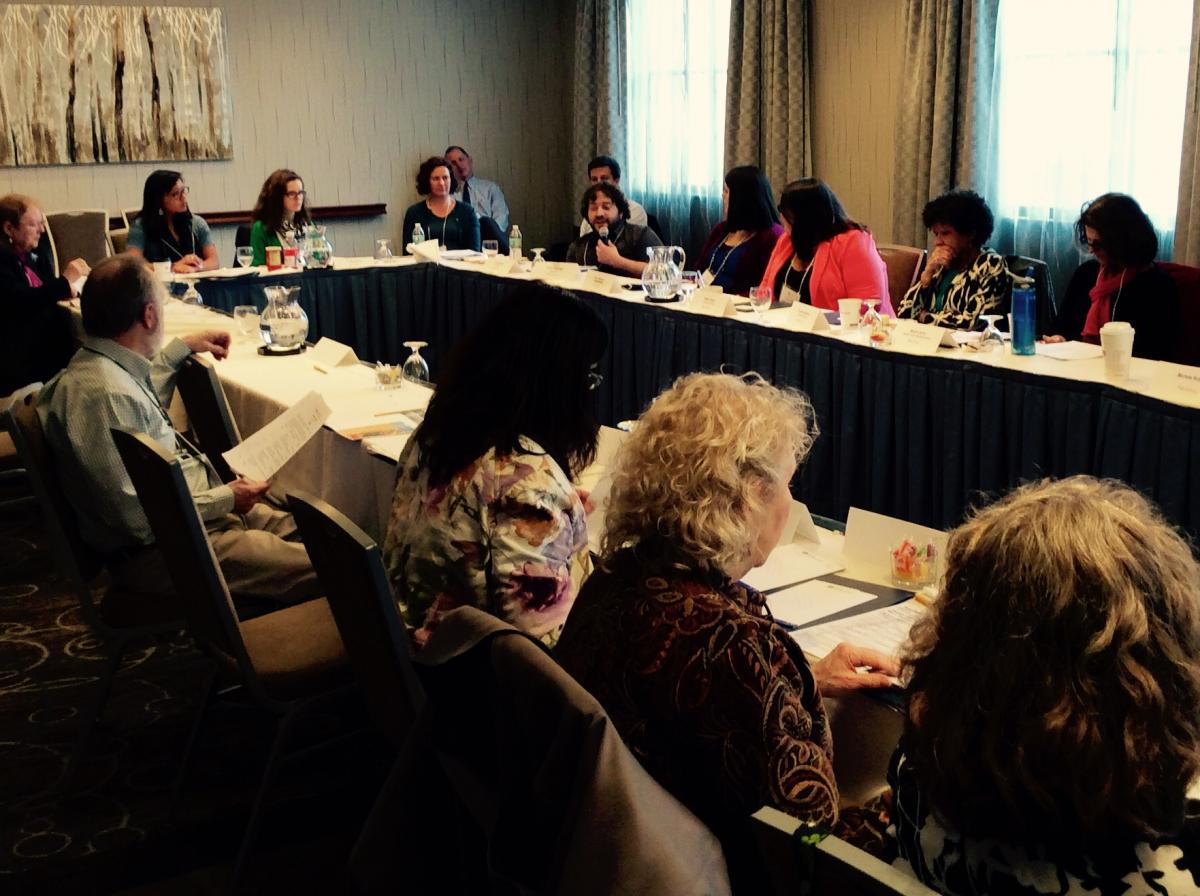NEGC Holds its 8th Annual Meeting

On April 9 and 10, 2015 the New England Genetics Collaborative held its 8th Annual Meeting in Portsmouth, New Hampshire. The meeting consisted of a mix of long-time participants with institutional knowledge, and a number of newer attendees. Families/advocates, health providers, academia and public health were all well-represented.
Five of the NEGC’s six work groups met in conjunction with the meeting. Highlights include: building partnerships in southern New England for a medical home webinar series that will take place in the coming months; sharing exciting “Year of the Family” outcomes for the GEMSS website; receiving advocacy training to strengthen NEGC’s potential to impact health care access and finance; assessing progress with quality improvement activities; 5) examining “out of the box” outcomes for transition, such as the development of an app by the Transition Workgroup.
The keynote sessions highlighted a number of ethical, legal, and social issues (ELSI) with presentations. They included Caroline Weipert from Brigham and Women’s Hospital and Meghan Towne from Manton Center with a presentation called “ELSI Considerations and IRB Responses to Genomic Sequencing in the General Newborn Population;” Dr. Sondra Solomon presenting “Living with Distinction: The Psychosocial Correlates of Genetic Disorder Related Stigma;” and Dr. Joanna Fanos with a presentation titled “’Welcome to Holland’: the Impact on Parents of a Diagnosis of CCHD.”
You can view images from the event here.
The New England Genetics Collaborative (NEGC) works to improve the health and social well-being of those with inherited conditions through collaborations among public health professionals, private health professionals, educators, consumers and advocates in Maine, New Hampshire, Vermont, Massachusetts, Rhode Island and Connecticut. The NEGC, a program of the Institute on Disability, is funded by Grant No. H46MC24093 between the University of New Hampshire and the Health Resources and Services Administration/Maternal and Child Health Bureau/DSCSHN Genetic Services Branch.
This project is supported by the Health Resources and Services Administration (HRSA) of the U.S. Department of Health and Human Services (HHS) under grant no. 46UMC24093, New England Genetics Collaborative, total award amount $3,000,000 (100% governmental sources).This information or content and conclusions are those of the author and should not be construed as the official position or policy of, nor should any endorsements be inferred by HRSA, HHS or the U.S. Government.